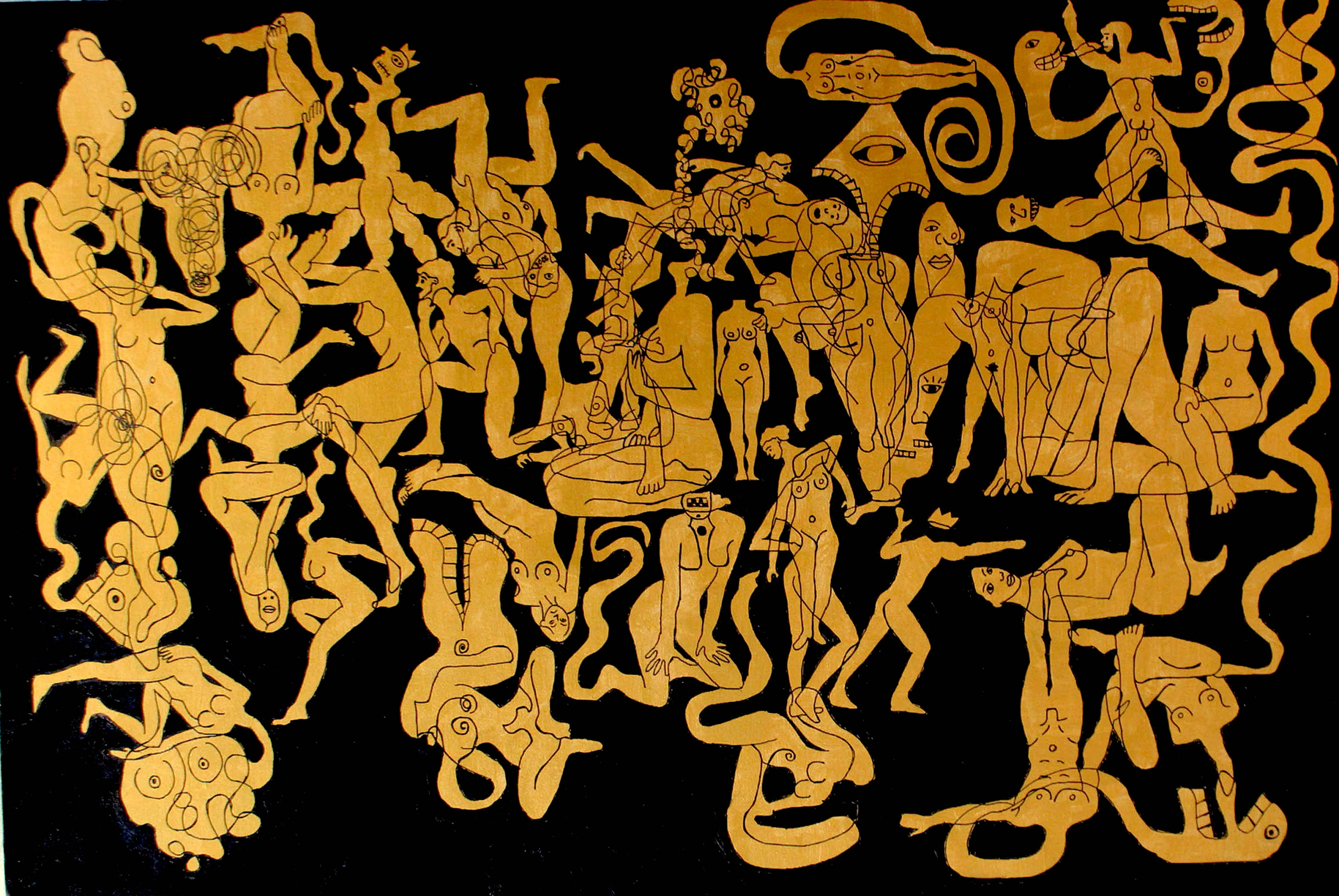He drove me in a TATA cab
through the streets of Old and New
Delhi. The air unbreathable. I heard
his bone voice
breaking down
telling why he didn’t vote
for “the man who wears a 9,00,000 rupee
pinstripe jacket”— why no vote for “the party with saffron testicles”.
A week ago they kicked
His young wife
out of the government
hospital, where every micro-
peon to head-doctor has a cut
in the business, he said.
Needles programmed to take
600 gram blood
but the clerk acknowledges
“only two
hundred”.
Not paying
19,000 rupees underhand
has consequences
for
a caesarian.
“Whole system
Bad for nothing.” So perplexed
he was, even the slip
of tongue failed to change the mood. And
outside on the streets
the Saffron Man in the election poster
continued to look
down at dust-bright denizens
of the city and said nothing.
He was completely silent
about vandalized churches, ghar-vapsi, and Ram-haram.
Death was once again trying to become
a Dada in India. It was early February, and
the man in the poster was silent about hate
within his cadres. Silent about expunged
Ramanujans and Ramayanas.
So silent, he
seemed to have forgotten he was silent.
So forgetful,
he had forgotten his own name.
The cabbie
applied a sudden brake.
We approached
Glaring mirror towers of a 5-star.
I ascended into the hotel’s
aromas. My hand made contact with hands
that had written poems and novels,
and my wine glass clinked with lit-fest
sponsors and arbiters of artistic taste-
n-talent. As I mutter-paneered and
rogan joshed with panelists (hush:
debating Charlie Hebdo) I wish I had asked
I wish I had asked the one in the TATA cab —
What color the testicles of mega-merged publishers
who pulp their own author’s
books? (Exhibit number one: Doniger’s Hinduism)
Now several months have passed by, and I am half
a continent away. And as I scribble this so-called poem
almost a shoem, the Saffron Man has gone silent again.
This time — savage lynching in Dadri.
So silent, he
seems to have forgotten he is silent.
So forgetful,
he has forgotten his own chest, his own clothes
And most eyes
are shut
or find themselves doubting
what they have seen.

